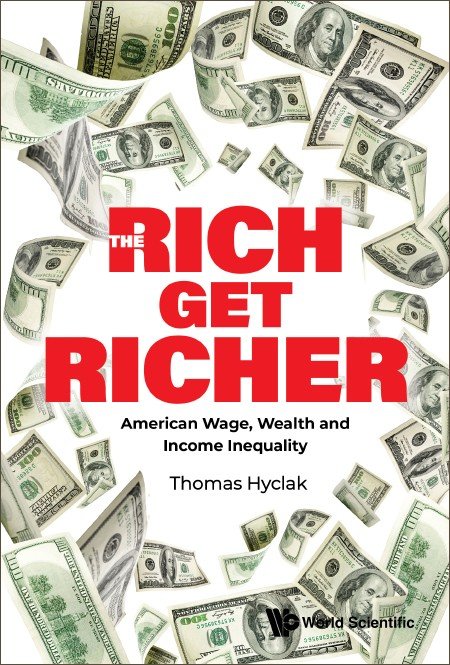System Upgrade on Tue, May 28th, 2024 at 2am (EDT)
Existing users will be able to log into the site and access content. However, E-commerce and registration of new users may not be available for up to 12 hours.For online purchase, please visit us again. Contact us at customercare@wspc.com for any enquiries.
Inequality of wages among workers and inequality of income and wealth among families and households has been rising steadily for the past half-century in the United States and other developed economies. However, the United States stands out for having the most unequal wage and income distributions to begin with and for experiencing the fastest rise in inequality over the following decades. While this has been a long-developing situation and the subject of academic interest for some time, it is only in the last decade or so that inequality has attracted considerable public attention and become a political issue. Inequality has also become a subject of renewed interest among economists, with a growing number of scholars engaged in the development of new databases and the analysis of the causes and effects of increased inequality.
This book provides an overview of the economic analysis of wage, income and wealth inequality in the United States, with a focus on this recent research. It provides the reader with an understanding of the complex causes of rising inequality, the serious consequences that make rising inequality an issue for public policy, and the potential policy actions that might be taken to slow or reverse rising inequality. The author presents an economic and statistical analysis in clear non-technical language to allow the general reader or student in an undergraduate course to learn the insights that economists have gained into the issue of inequality in advanced economies.
The book contends that rising wage inequality among workers and income and wealth inequality among families reflects the complex interaction of profound changes in the US economy over the last half-century. These are not limited to economic changes like new technology, increased globalization, changes in the internal structure of firms, and the rise of new growth sectors in tech, finance, and health care. Of additional critical importance are changes in public opinion and political platforms and policies that replaced the New Deal view of the economic role of government with a pro-business, free-market philosophy that has changed labor market policy in a direction promoting increased inequality. This major change in the environment raises important questions about the efficacy of policy proposals. An additionally intriguing issue is the ultimate impact of the financial crisis and the Covid-19 pandemic on perceptions of and support for government policies designed to reverse the seemingly inexorable trend toward greater inequality. This book traces the evolution of inequality over time through key concept illustrations and language that is easy enough to understand, even for the general reader.
Sample Chapter(s)
Preface
Chapter 1: Introduction
Contents:
- Introduction:
- The Record
- Causes
- Consequences
- Cures
- Summary
- Concepts, Measures and Evidence of Wage Inequality:
- Measures of Inequality
- An International Comparison
- Gender and Race
- Top Wage and Salary Earners
- Worker Mobility
- Summary
- Technological Change and Wage Inequality:
- Creative Destruction
- Skill-Biased Technological Change
- Job Polarization
- Summary
- Globalization:
- International Trade
- Offshoring
- International Financial Flows
- Immigration
- Global Inequality
- Summary
- Institutional Changes:
- Imperfect Competition in Labor Markets
- Minimum Wages
- Unions and Collective Bargaining Agreements
- The Fissured Workplace
- Summary
- Wealth and Income Inequality:
- Trends in US Wealth Inequality
- Drivers of US Wealth Inequality
- Racial Wealth Gaps
- Income Inequality
- Summary
- Consequences and Cures:
- Consequences for Individuals
- Consequences for Society
- Potential Cures
- Summary
Readership: Researchers, graduates, undergraduate students in courses on the economics of inequality; general reader.




